
1960s History Quiz (UK)
Difficulty : Medium Get 6/10 correct to pass the quiz
Question 1 of 10
The 1960s Betting and Gaming Act allowed the creation of which sort of establishments?
Question 2 of 10
Clint Eastwood says "Dying ain't much of a living, boy" in which 1976 movie?
Advertisement
Question 3 of 10
The government sent troops into which area of the UK to restore law and order in 1969?
Question 4 of 10
In the 1968 musical, which biblical character rocked a technicolor dreamcoat so fabulous that it could probably be seen from space?

Question 5 of 10
A new cathedral in which midlands city was consecrated in 1962?
Question 6 of 10
Double agent Kim Philby defected to which country after being exposed as a spy?
Question 7 of 10
In which year did England win the world cup?
Advertisement
Question 8 of 10
Who was convicted of the Moors Murders with Myra Hindley?
Question 9 of 10
Which country did England beat to win the World Cup in 1966?
Question 10 of 10
What was the first name of the woman who had an affair with John Profumo?
Advertisement

MORE QUIZZES
Food & Cooking Trivia Qu
10 home chef questions
10 home chef questions

General Knowledge Quiz (10 q
Are you up for a quiz?
Are you up for a quiz?

Food & cooking quiz
10 mixed questions
10 mixed questions

General trivia quiz (10 ques
Have fun!
Have fun!

1970s Hits: 10-Question Chal
How many hits can you score in this 10-questi..
How many hits can you score in this 10-questi..

General Trivia Quiz
Level : VERY DIFFICULT
Level : VERY DIFFICULT

Trivia Quiz : Mixed categori
10 Questions
10 Questions

10-question challenge: Test
How many questions will you ace in this 10-qu..
How many questions will you ace in this 10-qu..

1990s Lyrics Quiz
How many of these famous songs do you remembe..
How many of these famous songs do you remembe..

Advertisement
Science Quiz
How nerdy are you?
How nerdy are you?

Quiz : General knowledge
10 questions in misc categories
10 questions in misc categories
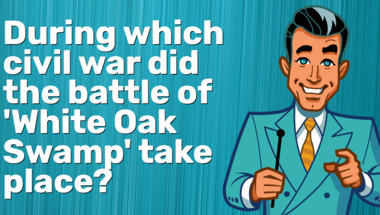
Einstein Meter Trivia Quiz
Let us know your score in the comments
Let us know your score in the comments

10 hard trivia questions
Tell us your result in the comments
Tell us your result in the comments

Science & Nature quiz for ex
10 questions to test your knowledge
10 questions to test your knowledge

General Knowledge For Trivia
10 questions to test your knowledge
10 questions to test your knowledge

Can you identify these famou
Could you kindly answer these 10 questions?
Could you kindly answer these 10 questions?
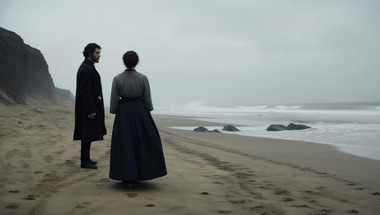
10-question general knowledg
How many questions will you ace in this 10-qu..
How many questions will you ace in this 10-qu..

10 mixed general trivia ques
Trivia quiz
Trivia quiz

Advertisement
History Quiz (10 questions)
Can you answer 7/10 of these questions?
Can you answer 7/10 of these questions?

Quiz : Songs of the 1963 hit
How many correct will you get?
How many correct will you get?

General Trivia Quiz
How many correct will you get?
How many correct will you get?

Trivia Quiz : Genius Level
How many correct will you get?
How many correct will you get?

World Geography Quiz
10 hard questions
10 hard questions

Impossible general knowledge
Can you get more than half of them right?
Can you get more than half of them right?

Animal Quiz
10 mixed questions
10 mixed questions

Trivia Quiz
10 questions to test your knowledge
10 questions to test your knowledge

Spelling Quiz
10 mixed questions
10 mixed questions

Advertisement
Trivia quiz for people who a
Can you also score a solid 7/10?
Can you also score a solid 7/10?

Quiz : Songs of the 1950s
10 questions
10 questions

Trivia Quiz for 65+
How many correct will you get?
How many correct will you get?

10-question globe-trotting q
How many right answers can you rack up?
How many right answers can you rack up?

Back to school quiz
10 questions lined up
10 questions lined up

World Geography Quiz
10 Trivia Questions
10 Trivia Questions

Expert Trivia Challenge
Can you reach 3 out of 10 correct answers?
Can you reach 3 out of 10 correct answers?

1950s Song Quiz
How many songs can you guess?
How many songs can you guess?

Trivia Quiz
10 questions
10 questions

Advertisement
Trivia quizzes
How smart are you?
How smart are you?

General Trivia 10 Question Q
Mixed Knowledge
Mixed Knowledge

Mixed General Quiz
10 fun questions
10 fun questions

General Trivia Challenge
10 random questions
10 random questions

Trivia Quiz: Intelligence Qu
What number of correct answers will you achie..
What number of correct answers will you achie..

General trivia quiz
10 mixed questions
10 mixed questions
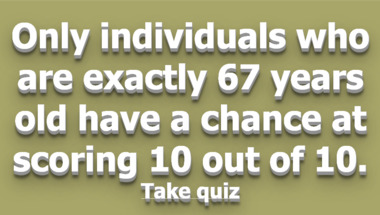
History quiz for the wicked
This is not a quiz for beginners
This is not a quiz for beginners

Movie Quiz
10 movie questions
10 movie questions

10 mixed trivia questions
Most people wont even get 7 out of 10 correct
Most people wont even get 7 out of 10 correct

Advertisement
Quiz : Do you know French?
Can you translate these 10 French words?
Can you translate these 10 French words?

History Quiz
Let's see how smart you really are!
Let's see how smart you really are!
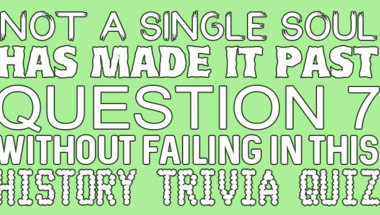
Amusing trivia quiz
10 fun questions
10 fun questions

*** TRIVIA QUIZ ***
*** HOW HIGH CAN YOU SCORE? ***
*** HOW HIGH CAN YOU SCORE? ***

Mixed General Trivia Quiz
10 fun questions
10 fun questions

10 Questions About Music
You Wont Even Get 4 Correct Answers
You Wont Even Get 4 Correct Answers

Einstein Meter Trivia Quiz
Are you up for a game?
Are you up for a game?

General Trivia Quiz
Let's see how smart you really are!
Let's see how smart you really are!

Mixed knowledge questions
How many correct answers will you get?
How many correct answers will you get?

Advertisement
Historical Quiz Catered to S
10 questions to evaluate your understanding
10 questions to evaluate your understanding

History Quiz
10 mixed questions
10 mixed questions

10 general trivia questions
A quiz about nothing and everything
A quiz about nothing and everything

World History Quiz
Did you pay attention in school?
Did you pay attention in school?
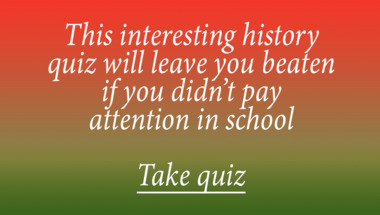
Expert level food & cook
10 very difficult questions
10 very difficult questions

10 trivia questions of a gen
Can you achieve a high score?
Can you achieve a high score?

1960s Song Quiz
How many songs can you guess?
How many songs can you guess?

General trivia quiz
How many correct will you get?
How many correct will you get?

Quiz : Hit list of 1978
How many songs can you nail?
How many songs can you nail?

Advertisement
1950s Song Quiz
How high can you score?
How high can you score?

Trivia quiz covering a varie
10 questions with a mix of topics
10 questions with a mix of topics

American History Quiz
10 questions to test your knowledge
10 questions to test your knowledge

1960s Lyrics Quiz
10 questions to test your knowledge
10 questions to test your knowledge

General trivia quiz
10 questions
10 questions

Quite difficult 10 question
How far can you stretch this quiz?
How far can you stretch this quiz?

History Trivia Quiz For Ever
Let Me Know Your Score In the Comment Section
Let Me Know Your Score In the Comment Section

Trivia Quiz for geniuses
10 questions in mixed categories
10 questions in mixed categories

Trivia quiz for 60+
10 questions about mixed knowledge
10 questions about mixed knowledge

Advertisement
Hard trivia quiz
Goal : Score 4 out of 10
Goal : Score 4 out of 10
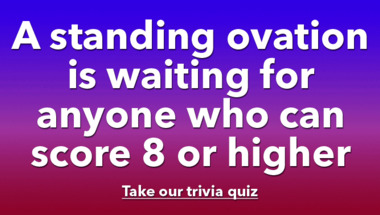
General Trivia Quiz
10 mixed questions
10 mixed questions

Music Quiz
10 questions
10 questions

Ultimate History Quiz for th
10 exciting history trivia questions
10 exciting history trivia questions

General Trivia Quiz
10 questions
10 questions

Expert level food &
Are you a foodie?
Are you a foodie?

World Geography Quiz
Where have you been?
Where have you been?

Quiz About North America
10 Difficult Questions
10 Difficult Questions

World Geography Quiz
10 questions
10 questions

Advertisement
Song Quiz
10 questions about different songs
10 questions about different songs

Impossible Technology Quiz
You will only get 6 out of 10 correct
You will only get 6 out of 10 correct

History Quiz
How many correct answers will you get?
How many correct answers will you get?

Who sang these 1961 songs?
Tell us your score in the comment section bel..
Tell us your score in the comment section bel..
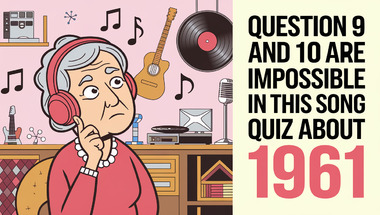
Quiz : 1979 Hit Lists
10 songs to guess
10 songs to guess

1960s Song Quiz
10 mixed questions in one quiz
10 mixed questions in one quiz

Trivia challenge
10 questions to battle
10 questions to battle

Mixed knowledge trivia quiz
10 mixed questions
10 mixed questions

Science and nature quiz
10 questions
10 questions

Advertisement
General Trivia Quiz with 10
Can you score 7 or higher in this one?
Can you score 7 or higher in this one?

General trivia test for smar
How many of them will you answer correctly?
How many of them will you answer correctly?

10-question brain teaser (ge
How many questions will you ace in this 10-qu..
How many questions will you ace in this 10-qu..

IQ test : Spelling and more
10 thrilling questions
10 thrilling questions

Quiz : European History 1960
How much do you remember?
How much do you remember?

Quiz : Song lyrics of the 19
How many of these songs do you remember the l..
How many of these songs do you remember the l..

Groovy 1970s Hits: 10-Questi
How many hits will you score in this 10-quest..
How many hits will you score in this 10-quest..

1950s Song Quiz
How many songs do you know?
How many songs do you know?

Knowledge quiz for you
Tell your score in the comments!
Tell your score in the comments!

Advertisement
Quiz : We removed a word fro
How many correct answers will you get?
How many correct answers will you get?

Let's test your knowledge
We have 10 questions ready for you
We have 10 questions ready for you

1960s Song Quiz
10 questions
10 questions

Quiz : Geography and more
Tell us your result in the comments
Tell us your result in the comments

General Quiz for everyone
10 genius questions lined up
10 genius questions lined up

10 trivia questions in one f
How high will your score be?
How high will your score be?

1960s Quiz
How many correct answers will you get?
How many correct answers will you get?

General Knowledge Quiz (10 q
Are you up for a quiz?
Are you up for a quiz?

1970s Song Quiz
How many songs do you know?
How many songs do you know?

Advertisement
Quiz on Songs from the 1960s
Guess the titles of 10 songs.
Guess the titles of 10 songs.

Hard food & cooking quiz
10 mixed questions to answer
10 mixed questions to answer

Movie Quiz
10 questions
10 questions

A quiz about the songs lyric
How many of the good old songs do you remembe..
How many of the good old songs do you remembe..

General Trivia Quiz
How many correct answers will you get?
How many correct answers will you get?

General Knowledge For Trivia
How many correct will you get?
How many correct will you get?

General trivia quiz with 10
10 questions in mixed categories
10 questions in mixed categories
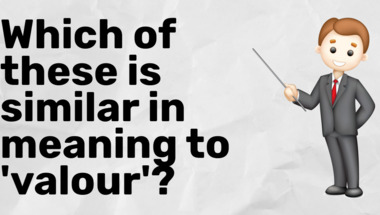
Trivia Quiz
How many correct will you get?
How many correct will you get?

Quiz : Mark the correctly sp
10 words that will put your skills to the tes..
10 words that will put your skills to the tes..

Advertisement
Science and nature quiz
10 Almost Impossible Questions
10 Almost Impossible Questions

Quiz about Old Sayings
10 easy questions for everyone
10 easy questions for everyone
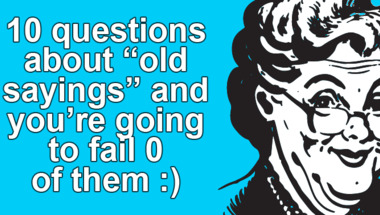
General trivia quiz for smar
10 mixed questions to challenge your knowledg..
10 mixed questions to challenge your knowledg..
